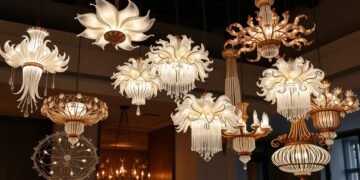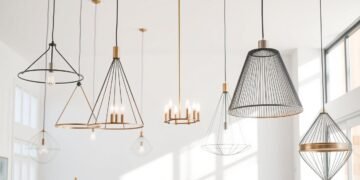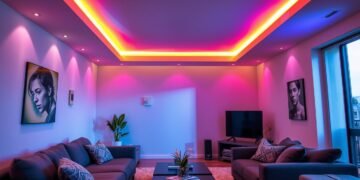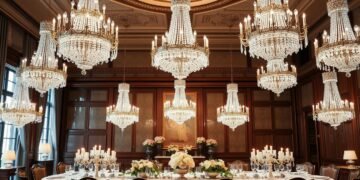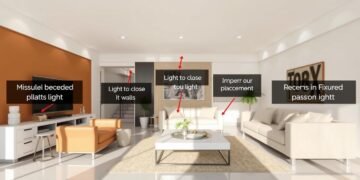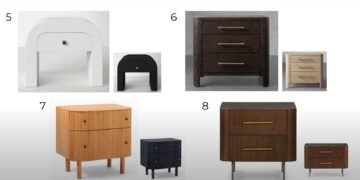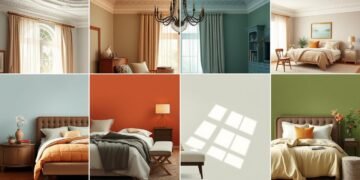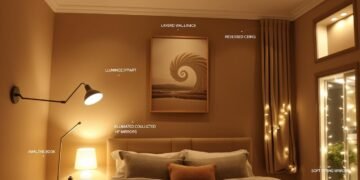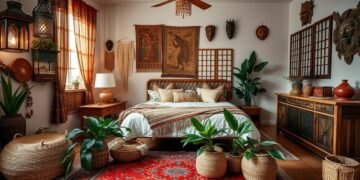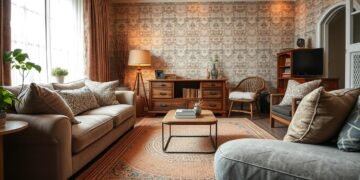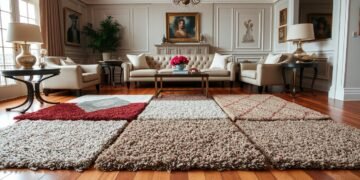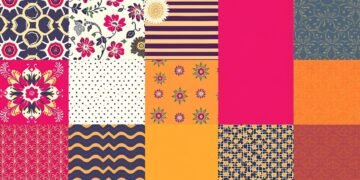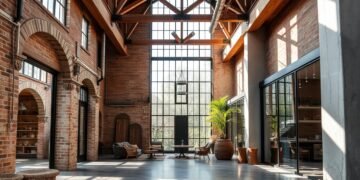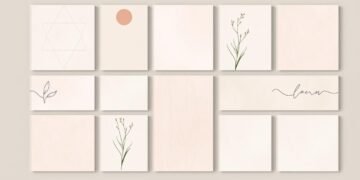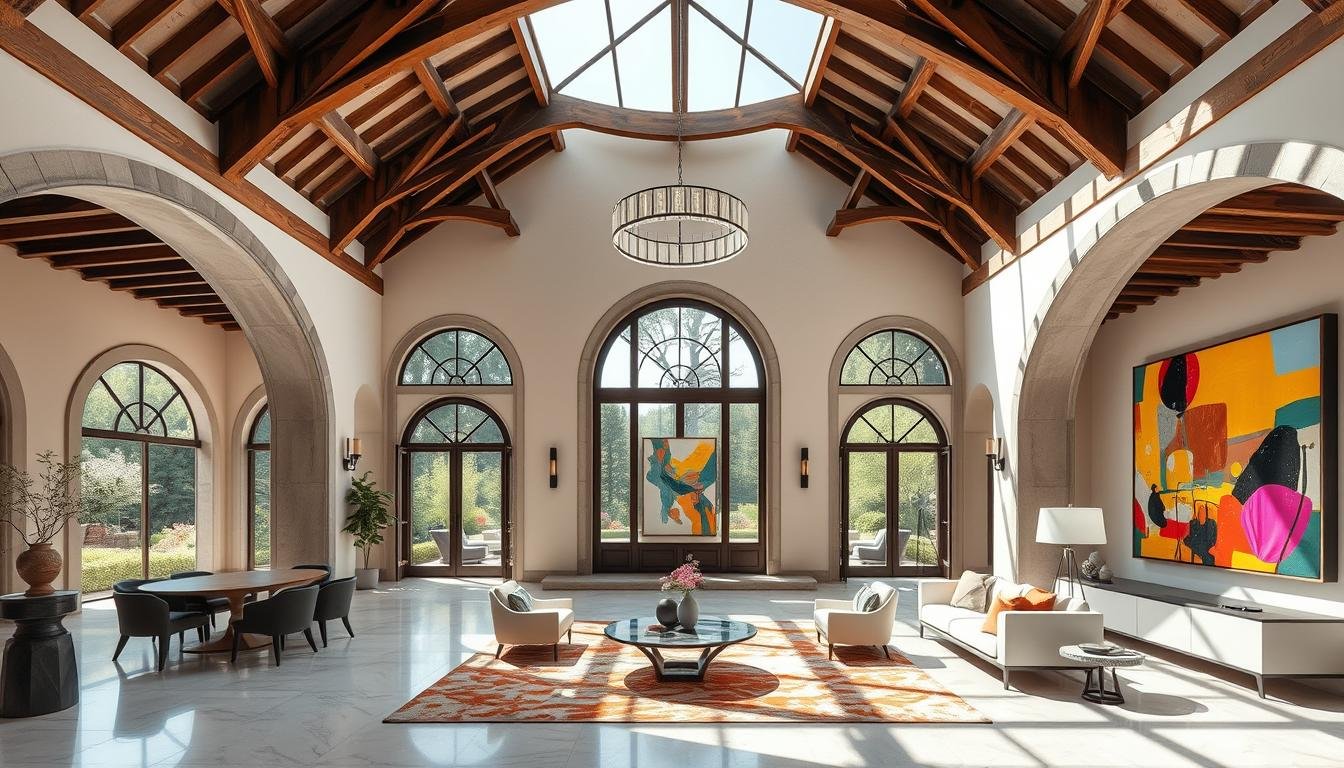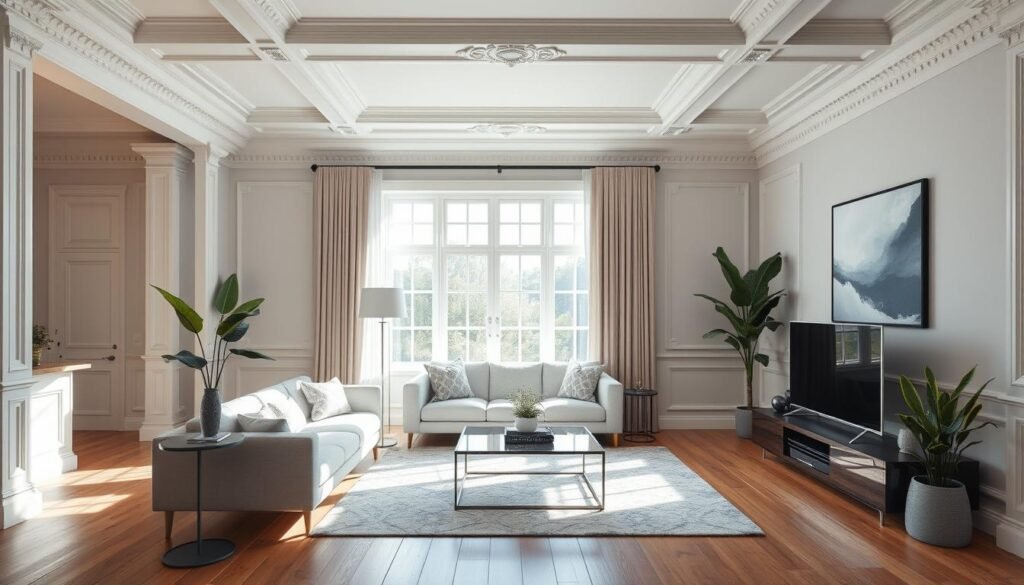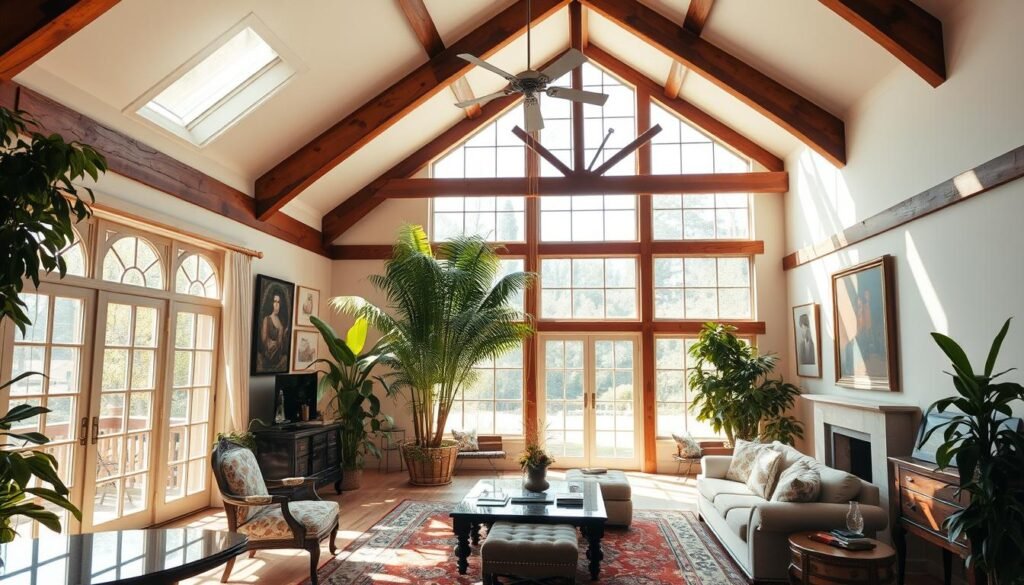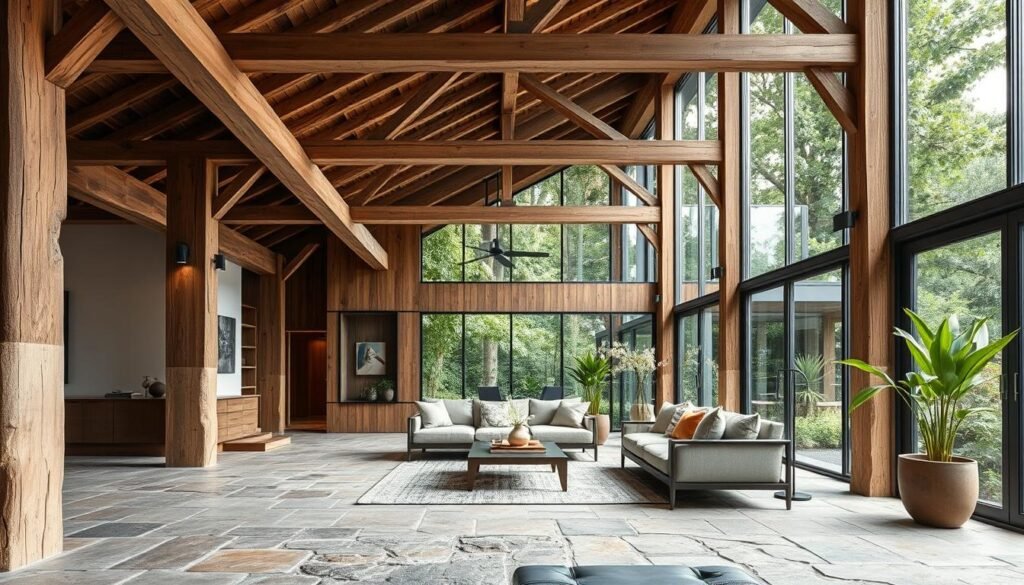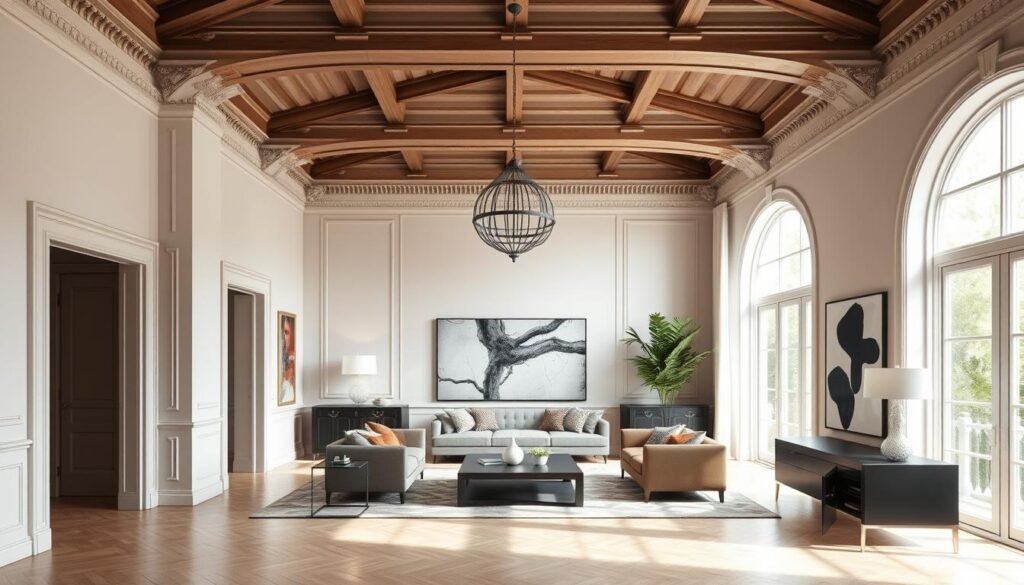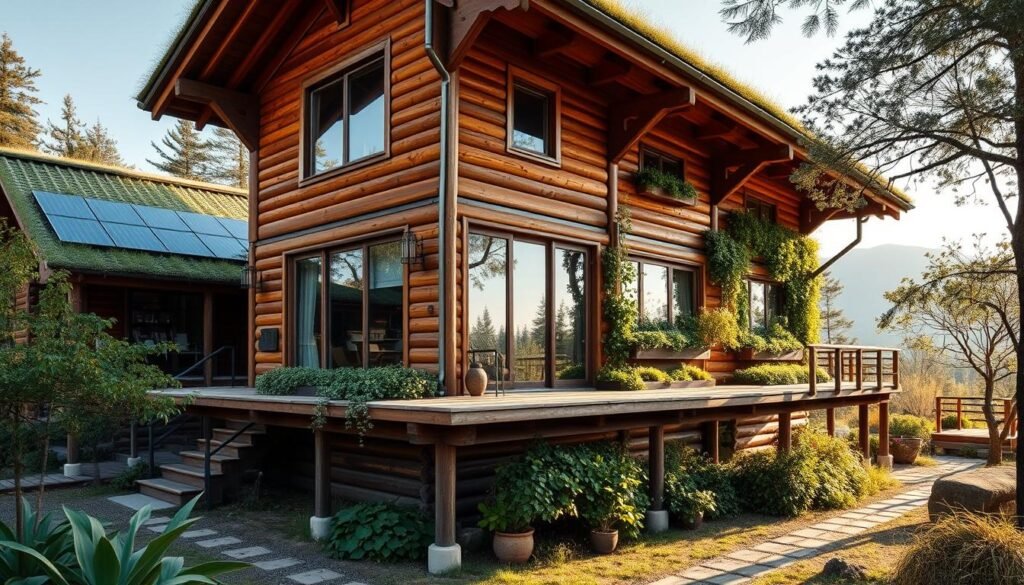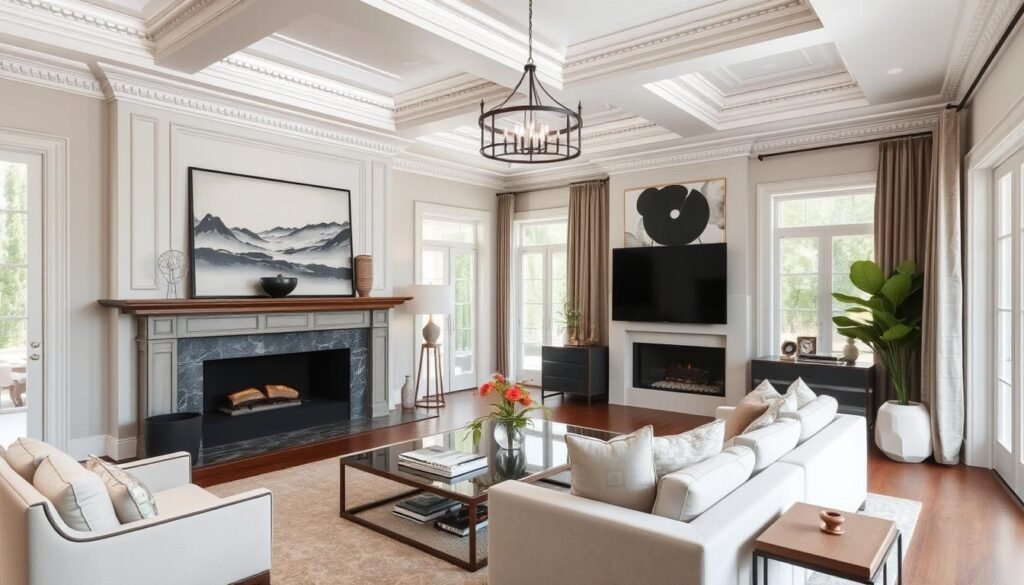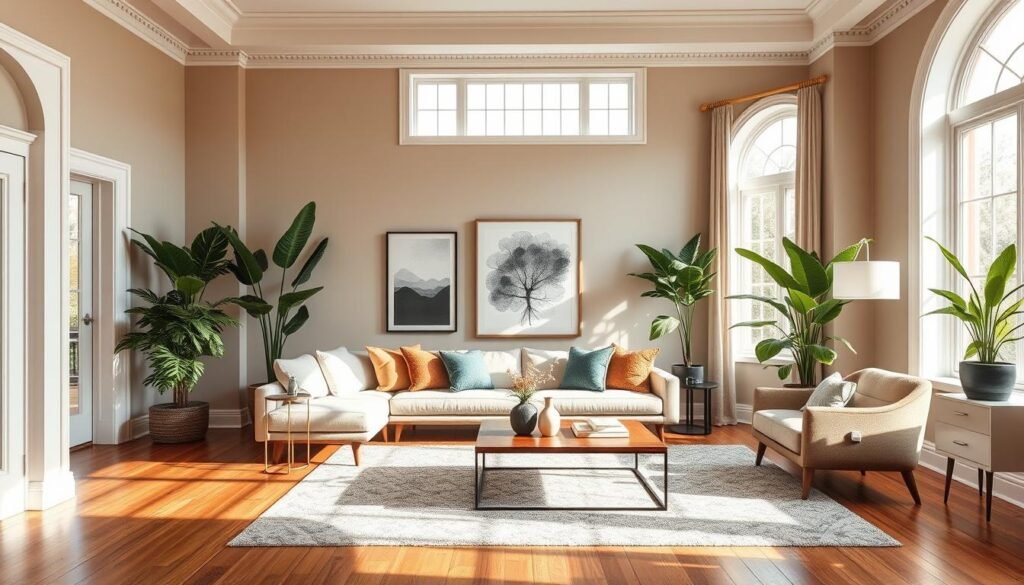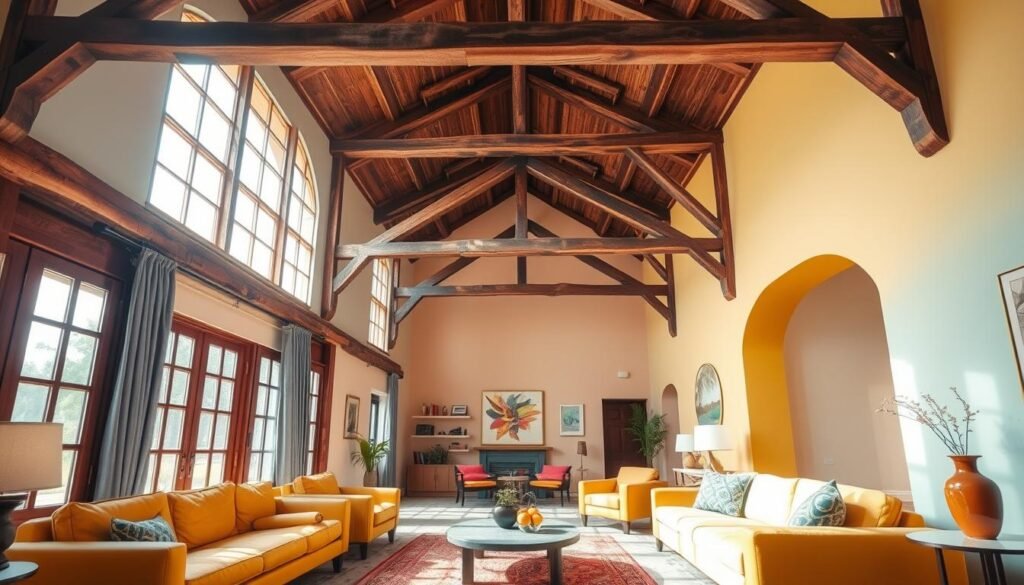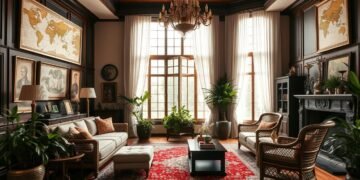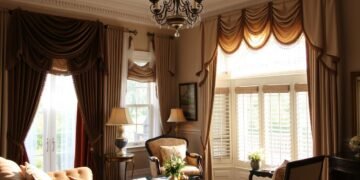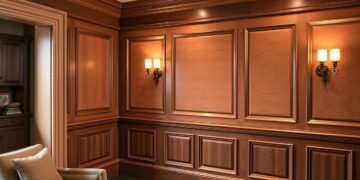Can your home bridge centuries of design without looking out of place? Imagine turning your traditional space into a stunning mix of old and new. This blend tells a unique story1.
I love mixing styles to make traditional homes feel modern. More people now see the value in combining old and new. This creates spaces that are both timeless and modern1.
Brands like B&B Italia and West Elm help merge modern design with traditional homes. The trick is to balance styles without losing a unified look1.
Architectural fusion is about adding modern touches to traditional homes. It’s not about replacing everything. By choosing the right materials, lighting, and furniture, you can create a space that honors history and modern design2.
Table of Contents
- 1 Understanding the Evolution of Architectural Fusion
- 1.1 Relatedarticles
- 1.2 Top 10 Iconic British Colonial Décor Elements to Infuse Classic Style into Your Home
- 1.3 5 Timeless Window Treatments That Will Perfectly Complement Classic Interiors
- 1.4 Bring Charm to Your Home: 6 Traditional Wall Paneling Designs You’ll Love
- 1.5 Historical Significance of Mixed Design
- 1.6 Modern Interpretation of Classic Elements
- 1.7 Cultural Impact on Design Choices
- 2 The Art of Balancing Old and New Design Elements
- 3 Essential Principles of Blending Traditional Architecture with Modern Décor
- 4 Incorporating Contemporary Furniture in Historic Spaces
- 5 Maximizing Natural Light in Traditional Structures
- 6 Traditional Materials Meeting Contemporary Design
- 7 Creating Harmony Between Classic Architecture and Modern Art
- 8 Sustainable Approaches to Architectural Fusion
- 9 Space Planning for Traditional-Modern Integration
- 10 Preserving Historical Features While Modernizing
- 11 Color Psychology in Mixed-Style Spaces
- 12 Conclusion
- 13 FAQ
- 13.1 How can I successfully blend traditional architecture with modern décor?
- 13.2 What are the best materials for combining traditional and modern design?
- 13.3 How do I maintain the historical integrity of a traditional space when adding modern elements?
- 13.4 What color schemes work best for blending traditional and modern styles?
- 13.5 Can I mix furniture from different design periods in the same space?
- 13.6 How can I incorporate modern lighting in a traditional space?
- 13.7 What are some sustainable approaches to architectural fusion?
- 14 Source Links
Key Takeaways
- Blend traditional architecture with modern décor strategically
- Use contemporary furniture to refresh classic spaces
- Consider architectural details when mixing styles
- Select versatile design elements that bridge different eras
- Maintain a consistent overall design aesthetic
Understanding the Evolution of Architectural Fusion
Architectural fusion is a new way of designing that mixes old traditions with today’s looks. It has changed how we see and use space3. Now, eclectic style interiors are more than just a trend. They are a smart way to make homes that really mean something.
Today’s interior design is all about blending old and new. Designers use architectural fusion to make spaces that are truly unique and tell a story3. This method combines old values with today’s needs in a creative way.
Historical Significance of Mixed Design
Fusion styles have a long history in architecture, showing how design ideas have always evolved. Mixing old materials with new methods is more than just looks. It’s a smart way to make spaces that are full of meaning4.
- Preservation of cultural heritage
- Innovative use of traditional materials
- Sustainable design solutions
Modern Interpretation of Classic Elements
Today’s architects see old design elements in a new light. They take things like wooden bay windows and exposed brick and make them modern and fresh4.
Cultural Impact on Design Choices
The rise of architectural fusion shows a big change in culture towards personal and meaningful design. Now, interior design trends focus on making spaces that are uniquely personal yet respect old traditions5.
Design is not just about appearance, but about telling a story through space and materials.
Architects and designers are working together to break new ground in design. They create spaces that are both useful and deeply meaningful5.
The Art of Balancing Old and New Design Elements
Making a space where old and new meet needs skill and insight. It’s about mixing timeless beauty with modern styles. This turns old places into lively, modern spots6. Architects and designers find that mixing old with new makes spaces look better and work better7.
- Choose neutral colors like whites, grays, and beiges for a unified look6
- Add one or two bold colors to link different parts together6
- Mix modern fabrics with old patterns to close the gap6
When picking materials, think carefully. Mix glass and steel with wood and stone for a strong design6. The aim is to keep the building’s original feel while adding new touches that feel right7.
Design is about finding beauty in the unexpected connections between old and new.
Lighting is key in balancing old and new. Pick lights with simple designs and neutral colors that match both styles6. Adding modern tech can save on upkeep while keeping the space’s history7.
| Design Strategy | Impact |
|---|---|
| Adaptive Reuse | 90% Successful Conversion Rate7 |
| Modern Extensions | 25% Property Value Increase7 |
| Balanced Interior Design | 30% Higher Homeowner Satisfaction7 |
The goal is to make a space that tells your story. It’s about mixing architectural pieces that honor the past and welcome the future.
Essential Principles of Blending Traditional Architecture with Modern Décor
To blend old-world charm with modern style, we must choose our design elements wisely. We focus on materials, colors, and textures to make a seamless mix8.
Material Selection Guidelines
Choosing the right materials is key to a harmonious blend. We mix traditional wood and stone with modern glass and steel9. This mix brings a fresh look while honoring history.
- Prioritize natural materials with historical significance
- Mix textures to create visual depth
- Select materials that complement both traditional and modern aesthetics
Color Scheme Coordination
Color is vital in merging styles. A well-chosen color palette can link old charm with new design8. Start with neutral tones and add bold colors where needed.
| Traditional Colors | Modern Accent Colors |
|---|---|
| Warm neutrals | Vibrant jewel tones |
| Earthy browns | Metallic shades |
| Soft creams | Bold geometric patterns |
Texture and Pattern Integration
Blending textures is an art. It’s about mixing different textures for a rich look8. Smooth glass next to rough stone tells a story.
The magic of design lies in understanding how different elements can coexist harmoniously.
By following these principles, you can make spaces that are both vintage and modern. This results in unique, personalized interiors10.
Incorporating Contemporary Furniture in Historic Spaces
Mixing old architecture with new furniture is an art. It’s about finding a balance between different styles11. The goal is to make a space that looks good and stays true to its past11.
- Balancing scale and proportion11
- Selecting complementary color palettes11
- Playing with contrasting textures11
“Design is about creating layers of visual interest that tell a story across time.”
Modern furniture can change how transitional spaces feel. Styles like Urban Collective and Relaxed Modern work well in old settings12. Here are some furniture picks:
| Furniture Style | Characteristic | Historical Compatibility |
|---|---|---|
| Contemporary | Clean lines | High |
| Scandinavian | Minimalist design | Medium |
| Mid-Century Modern | Organic shapes | High |
Adding personal touches like family items or art makes your space special11. By mixing old and new, you create a place that honors history and looks modern11.
Maximizing Natural Light in Traditional Structures
Renovating traditional buildings needs a smart plan for light. We mix old and new styles to make spaces that feel alive with natural light. This keeps the old charm but adds a fresh twist13.
Modern design brings big changes for brighter interiors. Big windows and open layouts help bring sunlight into old spaces13. These changes make rooms brighter and connect indoors with outdoors smoothly.
Window Treatment Solutions
Choosing the right window treatments can change a room’s feel. Here are some smart ideas:
- Floor-to-ceiling glass walls for more light13
- Frameless picture windows for a clean look14
- Skylights in key areas for extra light13
Modern Lighting Fixtures
Natural light is key, but artificial light is also important in old spaces. The right electric lighting can make a big difference. Just remember, it uses energy14.
Strategic Mirror Placement
Mirrors are great in old buildings, reflecting light and making rooms seem bigger. Placing mirrors right can make a room feel larger and brighter. It blends old and new styles well.
“Light is the magic that transforms spaces, bridging the gap between traditional charm and contemporary design.”
Using these methods, we can give old buildings a new life. We create bright, lively spaces that respect history but also welcome new ideas.
Traditional Materials Meeting Contemporary Design
Architectural revival is changing how we design interiors. It brings timeless beauty into today’s homes. Traditional materials give modern spaces a unique, eclectic look that blends old and new beautifully15.
Mixing traditional materials with modern design is more than just decoration. Using neutral colors like beige, taupe, and grey helps show off new design ideas15. Wood adds warmth and texture to modern homes16.
- Wood shelving units that bridge traditional craftsmanship and modern aesthetics
- Stone elements adding authentic texture to sleek interiors
- Metallic finishes that elevate sophistication15
Architects and designers are looking at traditional materials in new ways. Cross-laminated timber is a great example. It’s strong like concrete but eco-friendly16.
Design is about creating narratives that connect past and present, transforming spaces into living stories.
| Traditional Material | Contemporary Application | Design Impact |
|---|---|---|
| Wood | Minimalist Furniture | Warm, Authentic Feel |
| Stone | Feature Walls | Textural Depth |
| Clay | Decorative Elements | Cultural Connectivity |
Using these design strategies, we make spaces that tell rich, layered stories of architectural growth16.
Creating Harmony Between Classic Architecture and Modern Art
Making a space that mixes old architecture with new art needs a careful touch. This mix can turn an interior into a story that grabs your eye17.
To blend styles, you need a smart plan for art. Picking the right pieces can link old and new, making a space that feels alive and connected18.
Gallery Wall Arrangements
Building a gallery wall is like creating a piece of art. Here are some tips:
- Mix old frames with new art
- Choose colors that tie everything together18
- Make sure sizes and shapes match up18
- Place pieces to make a flow
Sculpture Placement
Sculptures can really make a space pop. Placing them right can highlight parts of the room and tie things together17.
Digital Art Integration
Digital art brings a fresh twist to design. Think about adding digital screens that match the room’s look. They can show different art based on your mood or the season17.
The goal is to have a conversation between the old space and the new art.
Pay close attention to every detail. This ensures your design respects both the old craftsmanship and the new look18.
Sustainable Approaches to Architectural Fusion
Sustainable renovations are changing how we design buildings. They mix old traditions with new ideas. Over the years, green building has gone from a small idea to a big movement19.
Architects use natural materials and old building ideas in new ways. This creates spaces that look good and are good for the planet.
I focus on making spaces that are both green and respectful of history. New materials like wood, steel, and concrete are being used more19. These materials help make buildings that look great and are good for the environment.
Sustainability is not just a trend, but a fundamental reimagining of how we interact with our built environment.
- Use local materials to cut down on emissions19
- Use the sun’s heat to warm buildings
- Add green roofs and walls20
- Use old building methods with new materials19
Architects are going back to natural materials like bamboo and adobe for green buildings19. These materials offer green solutions and connect us to old building traditions.
| Sustainable Material | Environmental Benefit | Cultural Significance |
|---|---|---|
| Bamboo | Rapid renewable resource | Traditional Asian construction |
| Adobe | Natural insulation | Indigenous Southwest architecture |
| Recycled Steel | Reduces mining impact | Modern industrial design |
By using these green methods, we can make buildings that connect our past and future.
Space Planning for Traditional-Modern Integration
Making the perfect mix of old and new in interior design is all about balance. I aim to blend traditional architecture with modern touches. This way, spaces feel both timeless and fresh21. It’s about combining historical elements with today’s design22.
- Use architectural details like crown moldings to link old and new21
- Choose neutral colors for flexibility in design21
- Play with materials and textures for interest21
Open Floor Plan Adaptation
Open floor plans are great for mixing old and new. By removing walls, we make spaces flow better. This keeps the original feel while fitting modern life23. Placing furniture and decor wisely helps define areas without losing harmony21.
Room Flow Optimization
Improving room flow means thinking about how spaces connect. Transitional style is key here, focusing on comfort and easy movement22. Art and accessories help link old and new design21.
Functional Zoning Strategies
| Design Zone | Traditional Element | Modern Integration |
|---|---|---|
| Living Area | Natural Wood Floors | Minimalist Furniture |
| Dining Space | Ornate Moldings | Contemporary Lighting |
| Work Area | Classic Architectural Details | Sleek Technology Integration |
The goal is to create spaces that show off personal style while respecting history21.
Preserving Historical Features While Modernizing
Combining old and new in architecture is a fine art. It’s about keeping the past alive while adding today’s comforts. This mix of styles needs creativity and a deep understanding of both eras24.
Turning old buildings into new homes is a big trend. It’s all about keeping their soul while making them useful again24.
Keeping old buildings relevant today is a big challenge. But, there are smart ways to do it:
- Adding new parts that don’t mess with the old25
- Using new tech to document and understand the old25
- Making them energy-smart without losing their charm24
Updating old buildings for today’s needs is key. Here are some important rules for doing it right:
| Preservation Strategy | Impact |
|---|---|
| Sustainable Material Integration | 15% Improvement in Environmental Performance24 |
| Energy Efficiency Upgrades | 25% Reduction in Energy Consumption24 |
| Smart Technology Implementation | 20% Energy Cost Reduction24 |
“Preservation is about maintaining the soul of a building while allowing it to breathe and adapt to contemporary life.”
Designing with a mix of styles needs careful thought. Architects use new methods to update buildings without losing their charm26. Adding new parts and modern touches can make a building even more beautiful26.
The goal is to create spaces that have a story. Where old and new blend together beautifully. This shows that changing buildings can be an art of respect25.
Color Psychology in Mixed-Style Spaces
Color is key in mixing old and new in interior design. It affects how we feel and see a space27.
Choosing colors wisely can change a room’s feel. Soft colors like earthy tones and light greys make spaces calm. They let both old and new elements stand out28.
Color is not just a visual element, but a fundamental language of design that speaks to our subconscious.
Experts suggest a smart color plan:
- 60% main color: Neutral base tones
- 30% secondary color: Complementary shades
- 10% accent color: Bold, energetic hues28
Each room needs its own color scheme. For example, bold colors like red and yellow add energy to gyms28. Cool colors like blue and green help us focus in offices28. Soft colors are perfect for quiet areas like meditation rooms28.
| Space Type | Recommended Color Palette | Psychological Impact |
|---|---|---|
| Living Areas | Soft Greys, Earthy Tones | Calm, Relaxing |
| Home Gym | Red, Yellow | Energetic, Motivating |
| Home Office | Blues, Greens | Focused, Productive |
Designers use color psychology to mix old and new. This creates spaces that look great and feel good27.
Conclusion
My exploration of mixing old architecture with new design has shown a powerful way to design. It’s not just about looks; it’s a deep conversation between old and new29. Today, 70% of design focuses on blending styles, making interiors a way to tell stories and share cultures29.
The eclectic designs I’ve seen show great promise. They mix old and new in a way that honors history and welcomes new ideas. Our designs aim for balance, blending old and new in a way that feels right30. With styles like Georgian and Victorian, the possibilities for creativity are vast30.
Designers and homeowners can make homes that show our heritage and dreams. By mixing old architecture with modern touches, we make spaces that look good and feel meaningful. This isn’t just about design; it’s about making connections between history and today29.
The future of design is about being creative while keeping traditions alive. Through blending old and new, we connect past and present. We keep cultural stories alive while exploring new design paths.
FAQ
How can I successfully blend traditional architecture with modern décor?
What are the best materials for combining traditional and modern design?
How do I maintain the historical integrity of a traditional space when adding modern elements?
What color schemes work best for blending traditional and modern styles?
Can I mix furniture from different design periods in the same space?
How can I incorporate modern lighting in a traditional space?
What are some sustainable approaches to architectural fusion?
Source Links
- The Trick To Mixing Modern and Traditional Furniture
- Mixing Modern & Traditional Interior Design & Architecture
- Modern Meets Classic – The Fusion of Architectural Styles
- Fusion of Traditional and Modern Architecture – Design Thoughts
- The Art of Fusion: Blending Sculptures with Modern Architecture – Bespoke Sculptures & Statue Manufacturers
- The Art of Blending Modern and Traditional Architecture in Homes – Archinomy
- Integrating Tradition and Modernity in Architecture : Hampton Designers
- Modern Meets Traditional: Blending Styles for Unique Interiors | illustrarch
- Blending Traditional Architecture with Modern Design in 21st-Century Buildings
- Blending Traditional Elements into Modern Architecture: A Harmonious Fusion
- Michael Chow’s Lavish Holmby Hills Mansion: A Price Cut And A Fifth Attempt to Sell
- Modern Furniture Meets Tradition: Expert Tips for a Perfect Blend
- Innovative Use of Natural Light in Modern and Minimalist Architecture | ArchEyes
- A Guide to Natural Light in Architectural Design | 23rd April 2023 | News
- Classic Meets Contemporary: A Guide to Transitional Design
- How Traditional Design Elements Inspire Modern Architecture and Interiors
- Modern Meets Traditional: Blending Styles for Unique Interiors | illustrarch
- A Blend of Modern and Traditional Design
- Sustainable Architecture Fusion | Doma Development
- Harmony in Design: Blending Modern Architecture with Traditional Gardens | illustrarch
- Modern Meets Traditional: Blending Styles for Unique Interiors | illustrarch
- Defining Design Styles: Modern, Contemporary, Traditional, Transitional, Rustic, & Shabby Chic
- Harmony in Design: Blending Modern Architecture with Traditional Gardens | illustrarch
- Historic Preservation vs. Modernization in Architecture: Finding the Balance | Fenner-Esler
- Preserving Historical Architectures | Why Is It Important?
- How Do Architects Balance Preserving History With Modernizing Functionality? – Architect Today
- How Color Affects Architecture And Design
- Colour Psychology in Design: Illuminating the Emotion Behind Hues
- Blending Styles: Combining Traditional and Contemporary Architectures | EA Home Design Blending Styles: Combining Traditional and Contemporary Architectures
- Timeless Transitional: Mixing Modern and Traditional Design | Mojo Stumer

